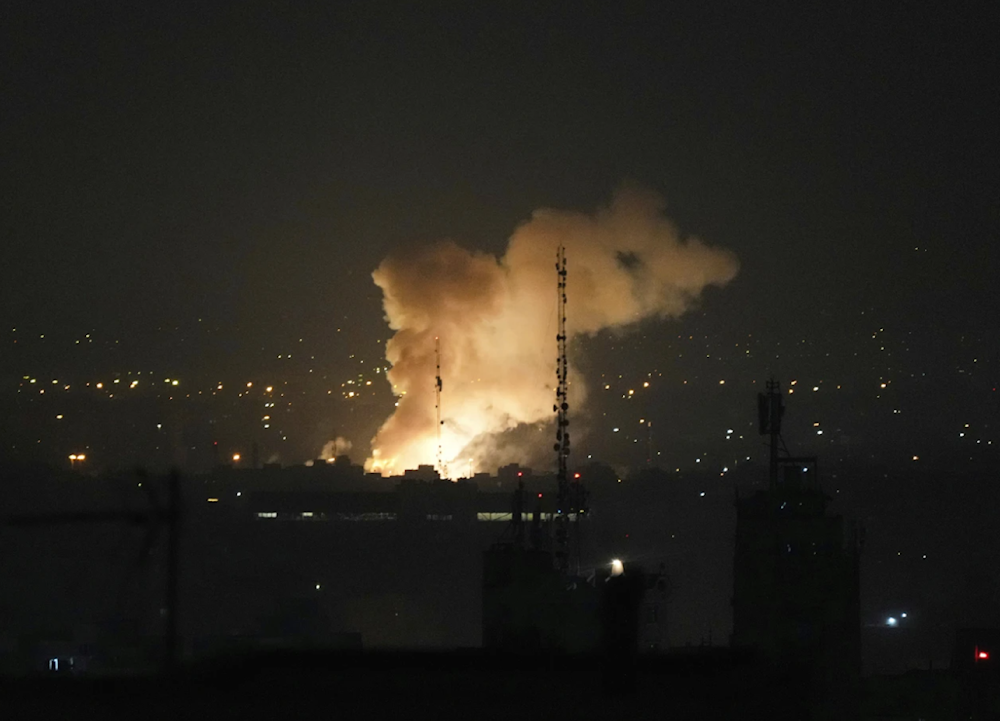Two IRGC members killed clearing explosives following Israeli war
In every war "Israel" wages, it leaves behind a trail of unexploded ordnance to ensure maximum damage and bloodshed.
-

Smoke rises up after an explosion in Tehran, Iran, on June 13, 2025 (AP)
Two members of Iran’s Islamic Revolution Guard Corps (IRGC) were killed on Sunday while attempting to defuse explosives in western Iran, an area hit by Israeli airstrikes last month, Iranian media reported.
The incident comes in the aftermath of a 12-day unprovoked war "Israel" launched against Iran on June 13, prompting retaliatory strikes from Tehran.
Citing a statement from the IRGC, Tasnim News reported that the two guardsmen died in Khorramabad while working to clear unexploded ordnance “left by the Zionist regime’s aggression.”
Israeli strikes reportedly killed military officials, nuclear scientists, and civilians.
In a separate report, the Fars news agency confirmed the martyrdom of an Iranian soldier in Yazd, central Iran, from injuries sustained in an earlier Israeli attack.
The war killed over 900 Iranians across the country. In retaliation, Tehran launched missile barrages that killed at least 28 settlers in the occupied territories before a ceasefire was implemented on June 24.
'Israel' concealed damage inflicted by Iran in war, report finds
The Israeli regime reportedly concealed the extent of damage inflicted by Iranian missile strikes on five of its military facilities during the recent 12-day war, according to a report published Saturday by The Telegraph, citing radar satellite data from researchers at Oregon State University.
The data suggest that six Iranian missiles successfully hit military targets across the northern, central, and southern regions of occupied Palestine, including the Tel Nof air base, a logistics site, and an intelligence center.
The report underscores the growing challenges faced by the Israeli occupation’s air defense systems, which, while allegedly intercepting most incoming missiles, appeared to be increasingly penetrable during the initial eight days of the exchange.
According to The Telegraph, strict military censorship laws issued by the Israeli regime contributed to the suppression of information regarding the strikes and the extent of the damage. The Israeli military has so far declined to comment on the missile interceptions or facility damage.

 2 Min Read
2 Min Read











